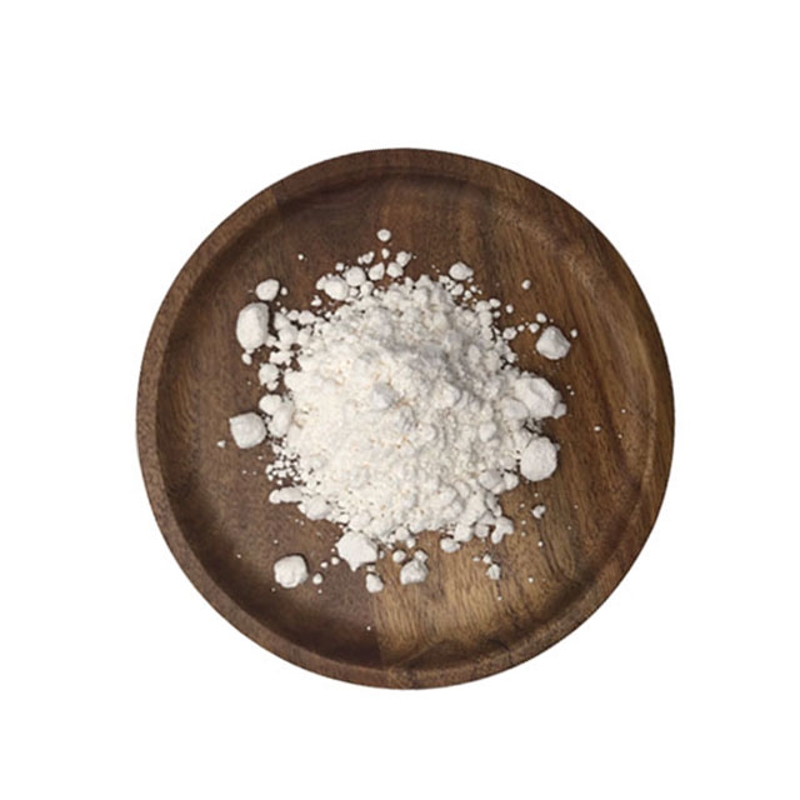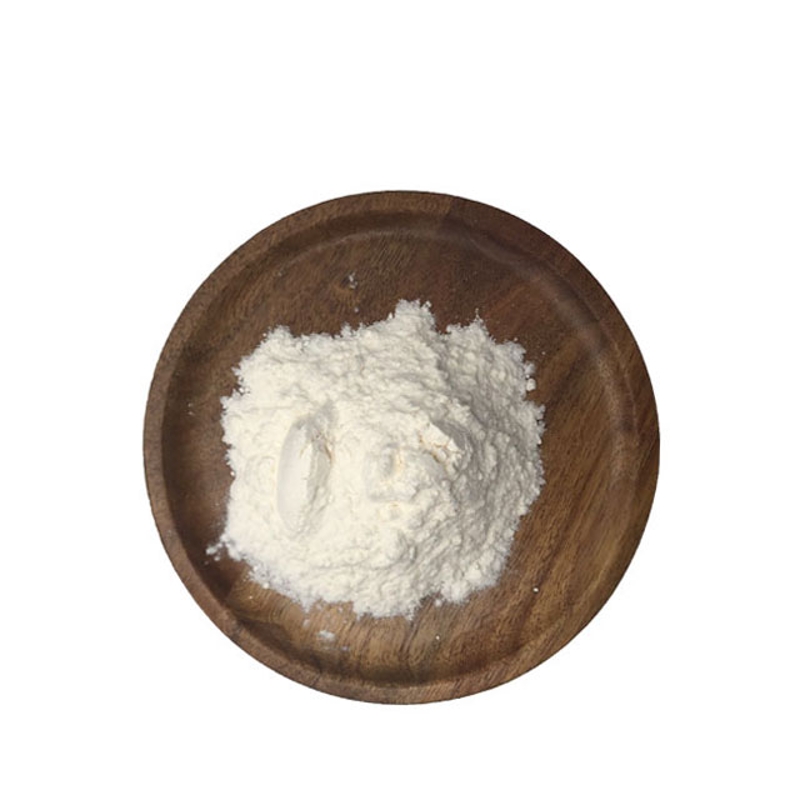-
Categories
-
Pharmaceutical Intermediates
-
Active Pharmaceutical Ingredients
-
Food Additives
- Industrial Coatings
- Agrochemicals
- Dyes and Pigments
- Surfactant
- Flavors and Fragrances
- Chemical Reagents
- Catalyst and Auxiliary
- Natural Products
- Inorganic Chemistry
-
Organic Chemistry
-
Biochemical Engineering
- Analytical Chemistry
- Cosmetic Ingredient
-
Pharmaceutical Intermediates
Promotion
ECHEMI Mall
Wholesale
Weekly Price
Exhibition
News
-
Trade Service
On April 13, at the 2021 AACR, BeiGene's self-developed PD-1 monoclonal antibody Bezean® (Tilelizumab) released the interim analysis data of the RATIONALE 303 study in the form of an oral report.
It is another bright moment for China's original and innovative drug Baizhan® to go global.
The RATIONALE 303 study is Bezeran® (tislelizumab) in the field of lung cancer, following RATIONALE 307 (first-line combination therapy for advanced squamous non-small cell lung cancer) and RATIONALE 304 (first-line combination therapy for advanced non-squamous non-small cell lung cancer) ) After the success of the research, another breakthrough in the second/third-line treatment of advanced non-small cell lung cancer.
Bizeran® (Tilelizumab) has a long history in the field of lung cancer.
It has now fully covered the first and second-line treatments for the entire population of advanced non-small cell lung cancer, and has continued to make a sound of China on the world stage.
Here, Yimaitong is fortunate to interview Professor Zhou Caicun of Leading PI from Tongji University Shanghai Pulmonary Hospital of RATIONALE 303 research, to provide us with an in-depth interpretation of the highlights of the research.
Professor Zhou Caicun, chief physician, doctoral supervisor, enjoys special allowance from the State Council, Shanghai Pulmonary Hospital, Tongji University School of Medicine Tumor Research Institute, Chinese Society of Clinical Oncology (CSCO) Executive Committee Member, CSCO Non-Small Cell Lung Cancer Special Committee Chairman, China Medical Promotion Committee Member of the Thoracic Tumor Branch Committee of the Shanghai Anti-Cancer Association Lung Cancer Molecular Targeting and Immunotherapy Committee Member of the International Lung Cancer Federation (IASLC) Education Committee Member of the International Federation of Lung Cancer (IASLC) Tobacco Control Committee Member of the Chinese Anti-Cancer Association Lung Cancer Professional Committee Standing Committee China Anti-Cancer Association Vice Chairman of Oncology Drug Clinical Research Committee Member of Standing Committee of Oncology Branch of Chinese Medical Doctor Association Vice Chairman of Oncology Branch of Shanghai Medical Association Vice Chairman of Oncology Branch of Shanghai Medical Association Yi Maitong: Immunotherapy opens a new way for the treatment of patients with advanced lung cancer Chapter, China is the world’s largest lung cancer country, but due to the availability of drugs, there are still a large number of patients who did not choose immunotherapy for first-line treatment, but used chemotherapy drugs.
After these patients progressed, the choice of second-line or third-line treatment options was very limited.
Can you talk about the current status of treatment for second-line or third-line patients? Professor Zhou Caicun: After the failure of first-line chemotherapy for lung cancer patients, they often receive second-line docetaxel or pemetrexed, but the effective rate of single-agent chemotherapy is less than 10%, and the median progression-free survival (PFS) is 2 to 3 Month, median survival (OS) is about 10 months, and the benefits are very limited.
Currently, the only immunotherapy drug approved in China for second-line indications of lung cancer is nivolumab (commonly known as drug O).
Past data show that O-drug single-agent second-line treatment compared with chemotherapy can increase the objective response rate (ORR) and improve OS.
However, for many Chinese patients, O-drugs are still expensive and the patient's economic burden is heavier.
RATIONALE 303 is currently the only domestically independently developed PD-1 antibody in the second/third-line treatment of locally advanced or metastatic NSCLC with a successful Phase III clinical study.
The success of this study demonstrates the outstanding efficacy advantages of Bazaan®.
The OS data is better than that of the O drug, and it provides Chinese patients with a new second/third-line treatment option that is inexpensive and high-quality.
In addition, the study also included patients from Eastern Europe and South America, which means that tislelizumab is expected to serve a wider group of foreign patients.
Yimaitong: The results of the RATIONALE 303 clinical trial have been published on the AACR in April.
Could you please briefly introduce the background of the study and the main results of this study? What do you think is the greatest significance of this research? Prof.
Caicun Zhou: RATIONALE 303 is an international multi-center clinical study (Study Design: Figure 1), which aims to enable the majority of lung cancer patients around the world to benefit from immunotherapy.
In addition to China, immunotherapy is also relatively poorly accessible to patients in some developing countries and regions such as Eastern Europe and South America, and the RATIONALE 303 study is now including this part of the population.
BeiGene, as a national pharmaceutical company with global responsibilities, not only devotes itself to serving Chinese patients, but also hopes to benefit patients from all over the world.
Figure 1 RATIONALE 303 study design The results of the RATIONALE 303 study show that tislelizumab is superior to chemotherapy in the three main efficacy indicators of second/third-line locally advanced or metastatic NSCLC patients who have undergone disease progression after receiving platinum chemotherapy.
Compared with the docetaxel group, the tislelizumab group significantly prolonged the patient’s OS, 17.
2 months vs.
11.
9 months, and the patient’s risk of death was significantly reduced by 36% (Figure 3); the patient’s PFS was also significantly improved, 4.
1 Months vs.
2.
6 months (Figure 2); ORR was 3 times higher than chemotherapy, 21.
9% vs.
7.
1% (Figure 4).
What is particularly gratifying is that the RATIONALE 303 study has brought about a large improvement in OS, about 6 months, surpassing the previous research data.
Moreover, regardless of whether PD-L1 expression is positive or negative, the patient’s OS will benefit (PD-L1≥1% patients have a 42% reduction in the risk of death; even in patients with PD-L1<1%, the patient’s risk of death is also Can be reduced by 26%).
It is worth noting that although many patients in the chemotherapy group received cross-line immunotherapy, the RATIONALE 303 study still achieved definite positive results, proving the outstanding efficacy advantage of tislelizumab.
Figure 2 RATIONALE 303 study PFS results Figure 3: RATIONALE 303 study OS results Figure 4 RATIONALE 303 study remission safety, compared with docetaxel group, tislelizumab group 3 or higher treatment-related adverse reactions The incidence is significantly lower (14% vs.
66%), and it is safe and tolerable.
The success of the RATIONALE 303 study means that tislelizumab is expected to be included in the guidelines and approved for the second/third-line treatment of locally advanced or metastatic NSCLC.
Based on its excellent efficacy and safety data and pharmacoeconomic advantages, tislelizumab may become the main drug in the second/third-line treatment of locally advanced or metastatic NSCLC in China and even the world in the future.
Yimaitong: What do you think of the future development prospects of tislelizumab in the field of lung cancer? What are your expectations and messages? Prof.
Caicun Zhou: Tilelizumab has been approved for the second/third-line treatment of locally advanced or metastatic NSCLC.
Prior to this, tislelizumab has been approved for the first-line treatment of lung squamous cell carcinoma.
Of course, our hope is much more than that.
At present, data on the use of tislelizumab for adjuvant and neoadjuvant treatments are gradually disclosed, and tislelizumab is expected to cover all aspects of lung cancer treatment.
In addition, we are also actively exploring tislelizumab combined treatment strategies to further improve the efficacy, such as combining anti-angiogenic drugs, TIGIT antibodies, and new target inhibitors.
Combination therapy allows patients to prolong their survival and live more dignified.
This is our greatest expectation for tislelizumab.
Yimaitong: Research on immunotherapy for lung cancer is still in full swing.
What do you think is the future development direction of immunotherapy? Are there any urgent problems that need to be further explored? Professor Zhou Caicun: Currently, there are three major problems in immunotherapy that need to be resolved urgently.
First, whether immunotherapy can be made more precise, which involves finding a better biomarker.
PD-L1 is currently a feasible biomarker recommended by the guide, but it has some shortcomings.
In the future, we need to analyze large samples through multiple omics to find better biomarkers.
Second, the current efficacy of immune + chemotherapy has reached the ceiling effect.
We hope that in the future, through new immune combined treatment strategies, the survival time of patients will be further extended and lung cancer will become a chronic disease.
Many explorations have also been carried out clinically, such as PD-1 antibody + TIGIT antibody + chemotherapy, PD-1 antibody + anti-angiogenic drugs + chemotherapy, double antibodies + chemotherapy, new target inhibitors + chemotherapy, etc.
Third, overcome the problem of drug resistance in immunotherapy.
Although chemotherapy is effective after immunotherapy is resistant, the efficacy of chemotherapy is very limited.
How to choose new treatment strategies against the drug resistance mechanism of immunotherapy, there is still a big gap in clinical practice.
We need to further clarify the acquired resistance mechanism and individualized differences of immunotherapy for lung cancer patients through translational research, re-biopsy, and multi-omics, so as to create more possibilities for the treatment of patients after drug resistance.
Domestic innovative pharmaceutical companies, including BeiGene, are working in these directions.
At present, they have developed a variety of new immunosuppressive agents, such as BTLA-4 monoclonal antibody, 4-1BB monoclonal antibody, double antibody and tertiary antibody, etc.
.
However, how these new drugs should be combined with existing treatments, and which patients should be selected for research, are issues that remain to be resolved.
At the same time, experts and scholars need to face the difficulties and actively promote the development of immunotherapy, so that lung cancer immunotherapy will have greater hope.







